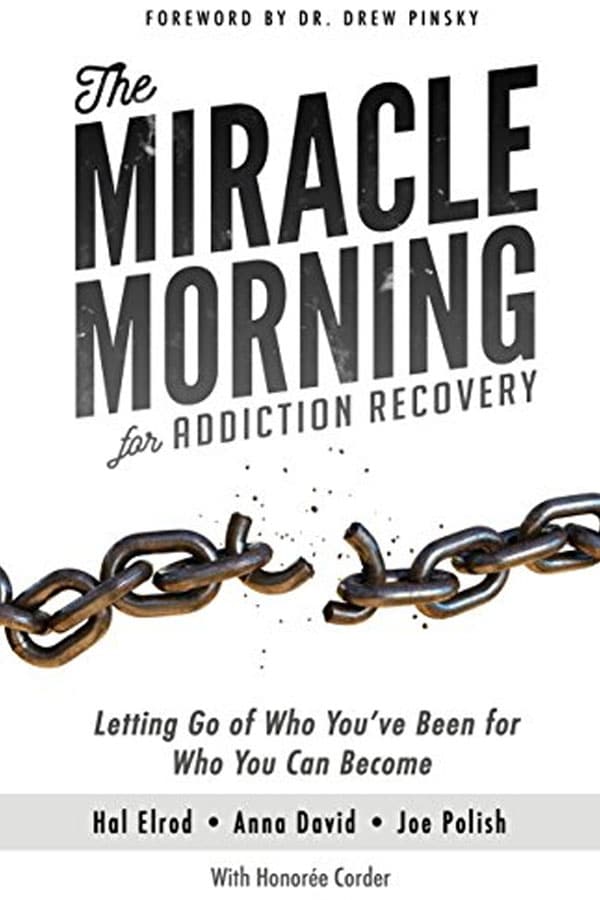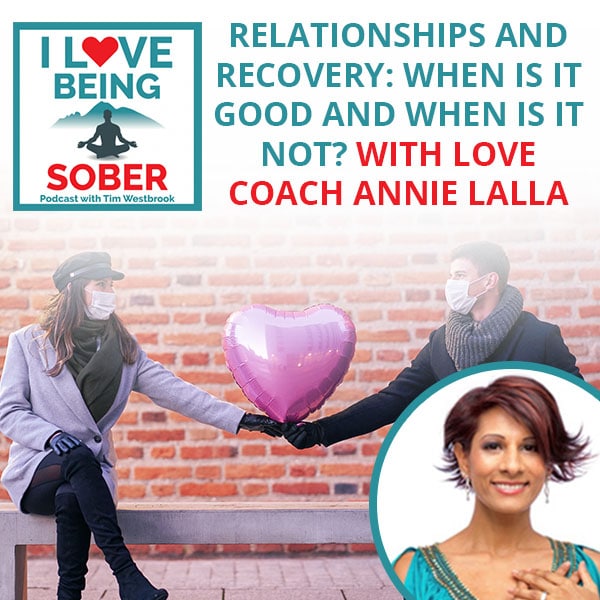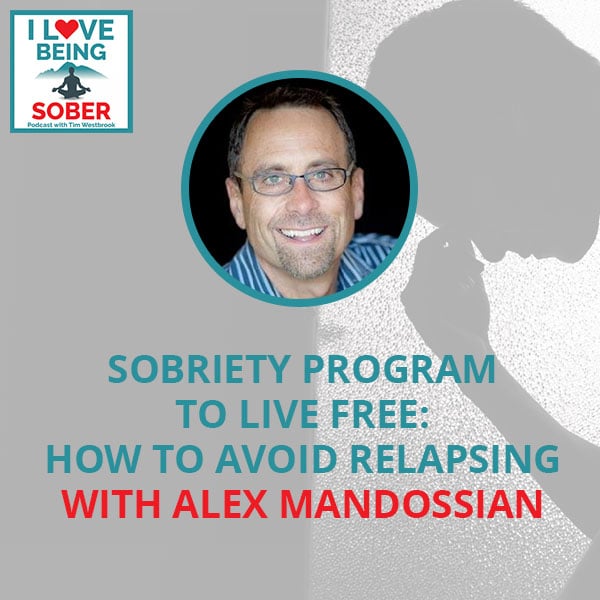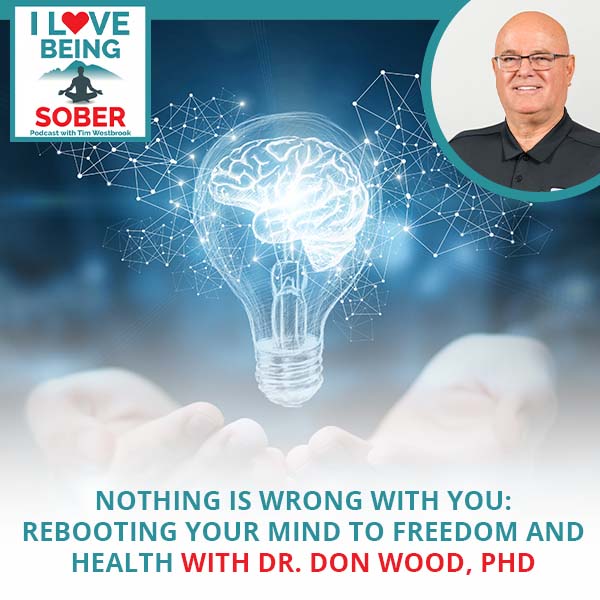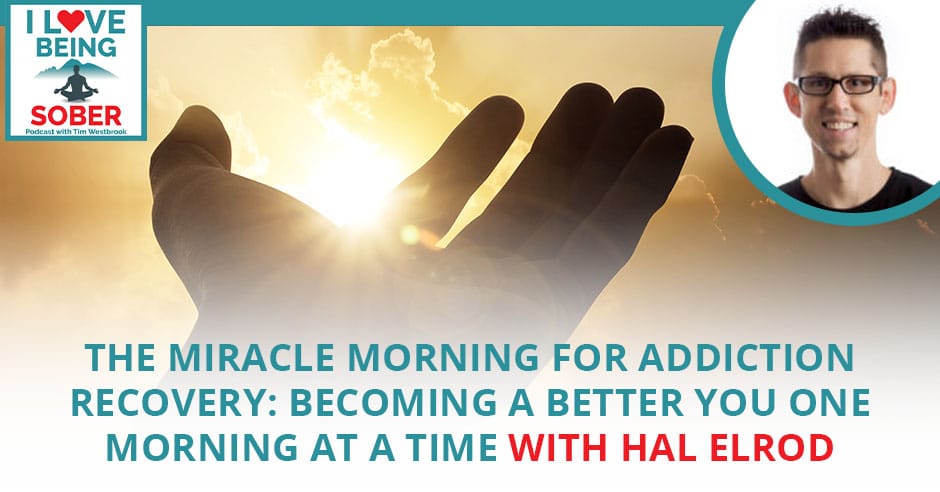
“Life happens for you, not to you.” This old adage could not be truer with the incredible story of our guest today. On a mission to elevate the consciousness of humanity, one morning at a time, Hal Elrod has been impacting so many lives—whether an addict or alcoholic in recovery or just an individual not in recovery. In this episode, he joins Tim Westbrook, MS to continue to pay it forward by talking about The Miracle Morning for Addiction Recovery. He explains the importance of setting yourself up for success for the rest of your life by simply winning every morning. Having been through events that defied all odds, Hal offers great insights about becoming a better version of who you are. So join him as he shares the tools to help you win at life, one morning at a time.
—
Watch the episode here
Listen to the podcast here
The Miracle Morning For Addiction Recovery: Becoming A Better You One Morning At A Time With Hal Elrod
We started this show because there’s so much misinformation about addiction treatment, mental illness, and recovery in general. There’s so much more to recovery than just going to inpatient treatment, seeing a therapist, and going to 12-Step meetings. All of those things are important, and AA saved my life. However, to find long-term recovery and live happy, joyous, and free, there’s a lot more to it than just stopping the drinking, drugs, sex addiction or any addictive behavior for that matter.
Sobriety and recovery can and should be fun. That’s not to say that the recovery process is going to be easy, and there won’t be difficult times ahead. However, to live the life that you deserve, be exciting and fun, you will need to change a few things about how you live your life. This includes new healthy lifestyle habits that promote your mental, emotional, spiritual, and physical health. That will lead you to live a kick-ass sober life. Visit CamelbackRecovery.com to learn more about treatment, recovery coaching, sober living, and your next step to freedom and happiness.
Our guest is on a mission to elevate the consciousness of humanity one morning at a time. He is one of the highest-rated keynote speakers in America and the creator of one of the fastest-growing and most engaged online communities in existence. He is the author of one of the highest-rated bestselling books in the world, The Miracle Morning, which has been translated into 27 languages, has over 8,000 five-star Amazon reviews, and is practiced daily by over 500,000 people in 70-plus countries. He is doing exactly that.
Hal Elrod died at the age of twenty. Hit head-on by a drunk driver at 70 miles per hour. His heart stopped for six minutes. He broke eleven bones and eventually woke from a coma to be told by doctors that he would never walk again. Not only did Hal walk but he also went on to run a 52-mile ultra-marathon and become a Hall of Fame business achiever before the age of 30.
As one of the most inspiring, highly entertaining, and in-demand keynote speakers in the world, whether you are an addict, alcoholic in recovery or an individual not in recovery, Hal will give you the tools to wake up to your full potential. We are going to talk about The Miracle Morning as it relates to addiction recovery. Hal Elrod, welcome to the show. I’m so glad to have you here.
I’m so grateful to be here. Thank you for having me.
The first time I met you was at the Genius Network Annual Event in 2018. I heard your story. It brought chills to me and tears to my eyes. You and I are similar in that. I was in a major car accident in 1996. I went to UC Davis. I was up in that neck of the woods because I know you were in Sacramento at that time. I believe your accident was worse than mine. Mine was pretty bad.
It’s not a competition.
They were both pretty rough and life-changing. I believe everything in life happens for you, not to you, which I know that’s your belief as well. We are here to talk about it and share our experience, strength, hope, and help as many people as we can.
[bctt tweet=”It is our responsibility to take what we have overcome and accomplished and then pay it forward and help other people.” username=””]
That is something that we all have. I would say responsibility but I also would say that’s my opinion and belief. Someone else doesn’t have to adopt it but that responsibility to take what we have overcome and accomplished, and then pay it forward and help other people. I look at humanity as a family. We are all a big family. I try to treat everybody, stranger and human being on the planet, the same way I would treat a family member. I would help them overcome their challenges or achieve what they want in life. I try to take that mindset to every person on the planet.
On that note, what I have learned and what I believe is by paying it forward, being of service, and helping another person, that’s what leads to fulfillment. Ultimately, that’s what we all want. We all want fulfillment. We all want to be happy, joyous, and free.
It leads to fulfillment and even to success. One of my favorite quotes and paradigms around being successful is Zig Ziglar. He said, “You can have everything you want in life if you help enough other people get what they want.” Another way I say that is, “The more value you add to the lives of others, the more valuable you become to them.” Is it someone that’s like, “This person is always helping me and adding value to me?” You can apply that to your circle of influence around you or your family. I’m going to always focus on adding value for other people. You can focus it widespread on your clients, customers, colleagues or boss. You name it. The more value you add and create, the more valuable you become and the more value you attract back to you.
It’s about contributing. It always comes back around. Call it karma, the universe or whatever you want to call it. My experience is that I feel good when I help another person. I contribute. I add value to it, and it always comes back. People need to read at least a quick version of your story, your car accident, your cancer, and what you have gone through to get to where you are now.
I will try to do the quick version here. When I was nineteen years old, I was a radio DJ. That was the dream that I was pursuing. A buddy of mine talked to me to go in for an interview for Cutco Cutlery to sell kitchen cutlery. I pushed back for weeks. I said, “I’m not a salesperson. I’m a radio DJ. I’ve got my life path figured out.” He said, “It’s a great opportunity. There’s no ceiling on your income. It’s commission and all these things.”
Finally, to get him off my back, I went in for an interview. Long story short, I’ve got the job and decided to give it a shot. In the first ten days, I had a mentor that trained me. I told him I wanted to do something I had never done before and break the all-time company record for the most anyone had sold in the first 10 days in the 50-year history of the company. I had never done anything like that in my life. He supported me and held me accountable. I let him guide me and followed what he told me to do, and broke that record.
A year and a half later, I was giving a speech at a company conference for my colleagues. That night driving home, I was hit head-on by a drunk driver at 70 to 80 miles per hour. I was found dead at the scene. My heart stopped for six minutes. I was in a coma for six days. I had eleven broken bones. My femur broke in half. I had broken the whole left side of my body. I came out of the coma. I was told by doctors I would never walk again, and I had permanent brain damage. I always joke that my kids and family will vouch for the brain damage but it shows up to this day many years later.
I decided, “If I never walk again, I will be at peace with whatever the outcome is.” I told my dad, “I will be the happiest person, dad, you have ever seen in a wheelchair because I will not allow my circumstances to define my emotional well-being. I believe I can walk again. I don’t know if I can but I’m going to put everything I can into that. I’m going to put all my energy into walking again while I simultaneously accept that it may never happen, which is an interesting dynamic to hold both of those possibilities in your consciousness at the same time.”
Two weeks after I came out of the coma, the doctors came in with routine X-rays. They said, “I don’t know how to explain this, Hal. Your body is healing so quickly that we are going to let you take your first step tomorrow.” I went from never walking again to 2 or 3 weeks after the car accident, I took my first step. I left the hospital a few weeks later. That shifted my focus from, “I wanted to be a radio DJ and/or a Cutco manager,” to, “Maybe I’m meant to do something with this experience to help other people.” I spoke at my high school within a matter of weeks after the accident. I started speaking at high schools and colleges. I wrote my first book, Taking Life Head On! In 2008, I published a book called The Miracle Morning. I self-published it.
Did you write before your accident? Have you always been a writer?
Not at all. In 2008, the economy crashed. I crashed with it. I came up with a solution to create this morning ritual. It changed my life so fast. I felt like it was a miracle, and my wife deemed it. She goes, “That’s your miracle morning. That morning routine is changing your life.” I taught it to my coaching clients, and they experienced the same type of profound transformation that I did.
It goes back to that sense of responsibility that I mentioned. I go, “If this miracle morning changed my life, then I wasn’t a morning person.” It’s changing all of my clients’ lives. Almost all of them pushed back in resistance, saying they weren’t morning people. I thought, “I have a responsibility to share this with the world.”
It took me three years to write The Miracle Morning. That’s a long time to write a book but I was committed for as long as it took. I self-published it in 2012. I had no audience. The rest is history. It sold over three million copies and translated into all these languages. All of that came out of me committing to, “I’m going to do whatever it takes to share this with the world because I believe and have seen it can help other people.”
In 2012, you self-published. What happened in 2016?
We were filming a movie. My friend is a filmmaker, Nick Conedera. He convinced me to make a documentary about The Miracle Morning. We would go around and film people that were in The Miracle Morning Community around the world. We filmed a gal in Kenya who had gone blind and was depressed. She was a single mom, and The Miracle Morning changed her life. It got her to become an author. She launched a motivational speaking career to follow her dreams. It was an amazing story. We flew to Kenya to film her, and then we were filming people around the United States.
Halfway through filming, I was diagnosed with a very rare aggressive form of cancer, acute lymphoblastic leukemia, which has a 20% to 30% survival rate. I was 37 years old. I had a 7-year-old daughter and a 4-year-old son. I’m being told that there’s a 70% to 80% chance that I was going to die. Those were the odds. It was terrifying. I took the same mindset I did with the car accident. I thought, “I can’t change that I have cancer. It doesn’t make sense to feel sorry for myself to live in fear. The only logical choice I have is to focus all my energy on my recovery, healing, and moving forward.”
Once again, the doctors were perplexed with how quickly I began to heal. It was 650 hours of chemotherapy over eight months. It was a total of three years of chemotherapy, and I did every holistic practice that I possibly could. Like anything, I believe that the greater the challenge and adversity, the greater the opportunity for us to grow and become better than we were before we were challenged. It’s funny. I called my filmmaker and said, “The movie is off. It’s on hold. I have cancer. I’ve got to fight for my life. I could care less about this film we are making, relatively speaking.”
He said, “Hal, I have been filming The Miracle Morning Movement, which you are at the core of. I’m coming to the hospital and filming you beating cancer. I know you are going to beat it. I’m going to film that journey. You are going to inspire millions of people, not just with The Miracle Morning but that are struggling from cancer or some other disease, how you approach it with your mindset and all of that.” I was taken aback. I go, “Let me talk to my wife. I don’t know about filming this whole journey. It’s unknown.”
[bctt tweet=”The most important aspect of any recovery or achieving any goal is your mindset.” username=””]
Thank goodness he pushed forward and persisted because of The Miracle Morning Movie, the documentary that came out. I would say that the cancer journey took it from good to extraordinary, where you see me at my lowest point. I’m bald and 40 pounds lighter. I’m fighting for my life and struggling in pain. I maintained my miracle mornings and was able to beat cancer. It has been for years. I’m grateful to say that I’m cancer-free.
That speaks to mindset and how important mindset is. Whitney Jones is a fitness pro and fitness athlete. I remember she told a story about how she broke her leg before a competition. She ended up winning the competition and becoming the world champion of Fitness or whatever it is. It’s all about the mindset. Whatever you believe, it’s going to happen. That speaks to it. The mind is so powerful and the sameness to the placebo effect. Our minds and bodies are amazing things. If we truly believe we can do it, then normally, it happens.
If I’m giving a speech and sharing a story, I said, “I don’t have any graph that shows you the correlation between my mindset and my body healing for me to walk again or my mindset and defying the logic of doctors to beat cancer.” I usually show pictures. I go, “Here is a picture of me taking my first step.” The point is there is a lot of science that is catching up around the mind-body connection. Dr. Bernie Siegel wrote many books. One of them is called Love, Medicine & Miracles. In that book, he talks about the correlation that he witnessed firsthand.
We dismiss anecdotal evidence way too much. It’s like, “If someone else did something, that’s evidence that we can do it, too.” If many people did it, then you don’t need a double-placebo study to say, “These people did this thing, and that shows it’s possible.” Dr. Bernie Siegel said that every patient that he had that beat cancer, including cancers that they shouldn’t have beat statistically, had one thing in common.
It was the mindset that said, “I’m going to live for myself and my family. There’s no other option.” They won and beat their cancer. He saw so many people that had less deadly cancers that gave up hope at the beginning that lived in fear, and then they passed away. He believes that the most important aspect of any recovery or achieving any goal is your mindset.
I believe it’s the victim mindset versus the “I’m responsible” mindset also. It’s the same thing. I had got clean and sober on March 8th, 2011. That’s my sobriety date. I took suggestions. I did what people told me to do. I’m still clean and sober. I believed that I could do it. It’s the same thing with the car accident that I was in. The doctors said I would never go back to UC Davis again, and I went back to school at UC Davis. They said I would never be normal again, and here I am. It was bad like yours. We have to believe that we can do it. If we believe whatever it is, then the chances that we succeed are exponentially higher.
I call that, The Miracle Equation. It’s not The Miracle Morning. That’s one book. The Miracle Equation is a book I wrote as well. The Miracle Morning wasn’t a book idea. It was something I lived in my life. I taught it to others, saw the results, and started to share them. The Miracle Equation is the two decisions that move your biggest goals from possible to probable to inevitable. The 2 decisions, number 1 is unwavering faith, and number 2 is an extraordinary effort. I wanted to speak about what you talked about. For me, that’s unwavering faith.
I believe that one of the most important keys to success, and it’s another way of getting more specific on the mindset that we are talking about, is maintaining unwavering faith that you can overcome whatever you need to overcome. You can achieve or create whatever you need to achieve or create. It defies logic because most of us don’t pursue goals that we don’t feel are very likely. Think about how you would approach a goal if you were to say, “The odds of me reaching this goal are slim to none. There’s very little chance I’m going to reach the goal.”
Is that followed up by, “I’m going to give it everything I have until the last possible moment?” No, it’s usually followed up by, “I’m not going to try. I’m going to do something else.” If you go, “The odds of this might be improbable but it’s possible,” I’m going to start there and pursue this goal with unwavering faith. For me, it’s simply saying, “I’m committed to giving it everything I have to achieve this goal to overcome this thing until the last possible moment regardless of my results along the way.”
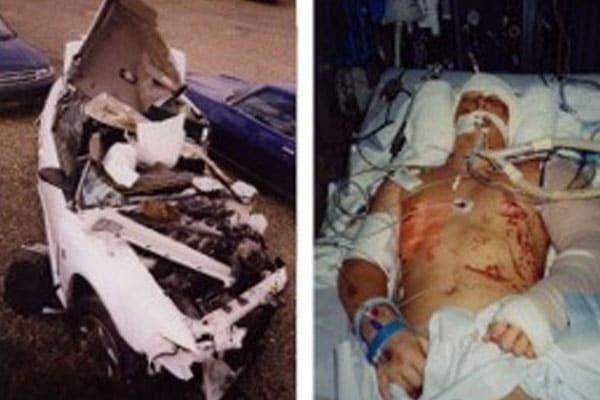
Addiction Recovery: The greater the challenge and adversity, the greater the opportunity for us to grow and become better than we were before we were challenged.
Part of that mindset of unwavering faith is built in the paradigm around goals. I learned this from Jim Rohn, essentially saying, “The purpose of a goal isn’t to hit the goal. The purpose of a goal is who you become during your pursuit of that goal.” If you give it everything you have to reach a goal but you fall a little short, the growth is still with you. It’s who you became in terms of the mindset that you maintain through the ups and downs, self-doubt, and failures along the way. It’s the habits that you maintain of getting up every day, moving in the direction of your goal, and doing something that moved you in that direction.
All of that sticks with you. You become a better version of who you were when you set out to achieve the goal. Even if you fail to reach that goal, you are still a better version of yourself. There’s another goal around the corner. You take this growth mindset of, “Goals are not black and white. Success is not only found in achieving the goal. It’s found in maintaining unwavering faith and putting forth extraordinary effort every day until I get to the point where the goal is either I hit it or I don’t. If I don’t hit it, that’s great. The growth was there, and then I take that into the next goal.”
That’s the thing. Most people don’t set these goals if they don’t believe they are going to happen. That’s where faith comes into play. For any invention, for example, the inventor couldn’t have known, “I could invent this thing for sure.” It was through tinkering and trial and error. Eventually, you get more clarity on who you are and what you need to do to achieve the thing you want to achieve. It might not happen in year one. It might take longer but eventually, it will happen.
Speaking to addiction recovery or recovery from alcoholism, my experience to people that say, “I need to stay sober,” they are reluctant. I can tell they don’t have complete faith. This is what I have seen. The people that focus on living a kickass sober life are not focused on not drinking and not doing drugs. They are focused on living a better life, doing healthy things, and getting their morning started on the right foot.
I have my version of a miracle morning. I have read The Miracle Morning for Addiction Recovery and the normal Miracle Morning. I have interviewed Anna David and Joe Polish on my show. They wrote this book with you. The morning routine is the most important part of my day and a lot of people’s days. What are the main points of The Miracle Morning?
The Miracle Morning is a daily morning routine. The premise of it is more important than the steps. Meaning, you are not going to do it if you are not sold on it. When I created The Miracle Morning, it was 2008. The economy had crashed. I crashed with it and was desperate. I was like, “I was in debt. My house was foreclosed on. I couldn’t pay the bills.” I was drowning because it was not getting better. It was getting worse month after month.
A series of events led me to go for a run. I hated running at that time. I had never run outside of high school required PE class. I went for a run and listened to a Jim Rohn audio. Jim Rohn said a quote. He is like my parent. We gave birth together to The Miracle Morning with this philosophy he shared. It was simply, “Your level of success in any area of your life will seldom exceed your level of personal development.” I believe that’s the missing link for most people.
On a scale of 1 to 10, if we are measuring success in any area, we all want level 10. We want to be as happy as we can be. It’s level 10 happiness, level 10 health, and level 10 financial freedom. We all want level 10 but then if you look in the mirror and you ask yourself, “What is my level of personal development on a scale of 1 to 10?” For me, at that time, it was 2 or 3. I was depressed, financially strapped, and not in a good place mentally and emotionally. I wasn’t doing personal development at all because I was trying to pay the bills.
The epiphany was I go, “If I want to create level 10 success in every area of my life, I have to become a level 10 person first and develop myself.” I went home and googled like, “What are the best personal development practices? What do the world’s most successful people do for their personal development?” I was looking for one practice. It’s the best or the most effective one. I ended up with a list of six and got a little overwhelmed. I went, “I can’t do all six. Which one is the best?” I couldn’t figure it out.
[bctt tweet=”One of the most important keys to success is maintaining unwavering faith that you can overcome whatever you need to overcome.” username=””]
The epiphany was when I went, “What if I created a ritual with all six of these practices?” Meditation, affirmations, visualization, exercise, reading, and journaling are the six most timeless and proven personal development practices in the history of humanity that the world’s most successful people in all walks of life had sworn by for centuries long before you and I were here. These practices enabled people to optimize themselves so that they could create what they wanted for their life.
I’ve got excited. I went from being depressed for six months to that night. I was like a kid on Christmas Eve. I was like, “I can’t wait to wake up and try this.” I woke up the next morning and fumbled my way through the whole thing. I did not meditate. I never did that before. Affirmations, the way I was finding them on Google, felt phony and inauthentic like, “I am a millionaire.” I’m going, “These aren’t true.” In visualization, my mind was wandering all over the place.
On my very first morning, I fumbled my way through the six practices. Even with that, at the end of that hour, I did one hour. I went, “This is the one thing that will change everything if I start every day with these six practices with the amount of clarity and energy that I have, how at peace, optimistic and hopeful I feel.” I had been hopeless for six months. I thought this would change everything in two months of doing the morning routine.
It wasn’t called The Miracle Morning. This wasn’t a book idea. Keep in mind. In 2008, when the United States economy had already crashed, and it was getting worse by the day, I doubled my income in two months. I went from being in the worst shape of my life physically to committing to run a 52-mile ultra-marathon when I had never run before. I went to my wife. I remember the day. I had signed two clients that day. I said, “Sweetheart, we officially have doubled our income in the last two months since I started this morning routine. It feels like a miracle.” She goes, “It’s your miracle morning.” I smiled and said, “I love that’s catchy.”
I went to my planner. It’s on a physical day planner. I opened it up and wrote miracle morning in place of a morning routine. I started doing that every day and taught my coaching clients. I said the rest is history. It worked for them, and then I shared it with other people. I organize them in an acronym to keep them memorable. These are the SAVERS, Silence, Affirmations, Visualization, Exercise, Reading, and Scribing. Those are the six practices. To quote Robert Kiyosaki when he had me on his show, “Hal, I have read The Miracle Morning three times. I do it every day.”
It was mind-blowing since he is one of my favorite authors himself. He said, “You named the book correctly because if you go study the world’s most successful people in any field, you would be hard-pressed to find anyone that doesn’t swear by at least one of the SAVERS. Maybe they do 2 or 3. I had never heard of anyone that did all six of these ancient best practices. I believe that when you do all of them, any one of them will change your life. All six of them, you are going to see miracles. That’s what I’m experiencing. It’s what you have experienced, and The Miracle Morning is appropriate.”
Robert Kiyosaki is a guy that studies. That’s what he does. His jam is studying. I know for me ever since I’ve got clean and sober. For many years, I have been doing a version of The Miracle Morning. I met you in 2018, so I didn’t understand or have SAVERS. For me, the first step is I’ve got to wake up an hour before I have any other commitments. Even if I work out at 5:00 AM, which many times I go and work out at 5:00 AM, I’m up at 4:00 and do my little version. It’s not exactly in the perfect order. It’s the perfect order for me. Do you ever skip your morning routine or miracle morning?
Never intentionally. I will give you an example. I strive to do The Miracle Morning seven days a week. I probably averaged 6.3. It’s almost every day. My wife and I got invited to this cool dinner. We weren’t eating the main course until after 9:00 PM, which I normally eat at 5:00 PM so that my food is digested by the time I go to bed. I didn’t get to bed until late and preferred not to set the alarm. I try to wake up naturally. I have done this for so long. I tell myself before I go to bed what time I’m going to wake up. I tell my body what time it’s going to wake up.
9 out of 10 times, if not more, I wake up in that range. It’s usually around 4:11 AM or 4:22 AM, and then I start my miracle morning at 4:30 AM. When I miss my miracle morning, I’m off. I’m fine. I’m here, and we are doing this. It’s so valuable. That’s a good segue into something that a lot of people ask. We have The Miracle Morning Community Facebook group. There are over 300,000 people in that group from over 200 countries. It’s growing huge, and people are engaged.
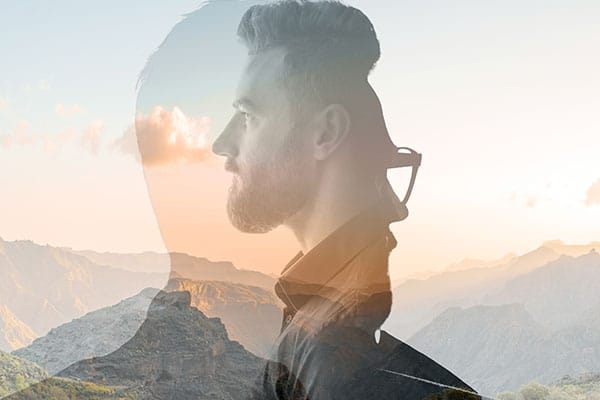
Addiction Recovery: How you start your day sets the tone, your mindset, the context, and the direction of your day.
One question that a lot of people will ask that is newer to The Miracle Morning is, “Do you do this 5 or 7 days a week? How often do you do it? Do you take the weekends off?” Almost everybody, myself included, has the same answer across the board. I started Monday through Friday thinking, “We have been conditioned you take the weekends off.” When I would take off Saturday, I would wake up a couple of hours later and feel like something was missing. The Miracle Morning is so beneficial that they were missing the peace of mind, motivation, energy, clarity, and all these benefits that come from The Miracle Morning.
I went six days a week. I started doing it Monday through Saturday. I finally started to do it seven days a week, and I’m the same way. Also, there’s a correlation. Oprah Winfrey had a quote where she said, “I love waking up early on Saturday and Sunday when I don’t have to and working on things that are important to me because it comes with a sense of space and freedom that I don’t have during the workweek because I’ve got to be somewhere at a certain time.” I can honestly say my favorite miracle mornings are probably Saturdays and Sundays because I don’t have the same commitments. My kids are going to sleep a little later. I can do a longer miracle morning. It feels a little freer.
I’m the same way. I don’t skip it intentionally. If something happens, then I don’t get to do the whole thing. I normally do at least breathwork. I pray, meditate and do a gratitude list. Those are the ones that I do, and then I exercise. Usually, that’s not in the same morning block but it’s shortly after.
There’s an entire chapter in The Miracle Morning book called The Six-Minute Miracle Morning. At least to me, I always think it sounds gimmicky. It’s not like six-minute abs or whatever. The reason I created that is it was like the book itself. It was my experience, and then I threw it in the book. We have this all-or-nothing mentality where it’s like, “I want to work out for 1 hour or 30 minutes. If we don’t have enough time for that, we tend to skip it altogether.” We do that with everything in life.
I found myself many days where I would wake up and was like, “I want to do 1 hour of miracle morning but I’ve only got 25 minutes. I have to leave. I’m not going to do it. I will skip it.” I kept having that all-or-nothing mentality. One day, I had this thought, “What if I did a 6-minute miracle morning where I still did all 6 of the SAVERS but I did 1 minute each?” I set my timer for 60 seconds on my phone. I meditated, prayed, and got quiet. I spent the first S, the Silence. I spent time in silence and felt calmer and more peaceful. The timer went off. I set it again.
I grabbed my affirmations. I read a few things that reminded me, “I’m as worthy, deserving, and capable of everything I want in my life as any other person on Earth. I will prove it with my actions.” I was like, “Yes. I’m going to do it.” It took a minute to get me fired up and recommitted through those affirmations. It’s the same thing. I did exercise.
It’s 60 seconds of jumping jacks. I’m out of breath. My heart rate is up. I’m feeling awake and energized. I pulled out my book and read a page. I realized that The Miracle Morning is scalable. Even on those days when I’m rushed, I do a six-minute miracle morning. It’s amazing the bang for the buck that you get for those short six minutes.
It’s like BJ Fogg, who wrote Tiny Habits. He talks about starting small. It’s the same thing. We change best by feeling good. We want to feel good. If your goal is one pushup, that’s easy to achieve one pushup. If your goal is to meditate for one minute, it’s pretty easy. You can hit that goal as opposed to the all-or-nothing, “I need to read a whole chapter, read for an hour, exercise or go run 10 miles.” That’s too much, and you end up doing nothing. I love scaling it down. If you only have time to read 1 paragraph or even 1 sentence, more often than not, you are probably going to end up doing a little more than you planned on doing. It’s the win.
Mark Victor Hansen, I saw him speak at an event once and he said, “When it comes to the habits that you want to create in your life or the changes you want to make, it’s not all-or-nothing. Lean into it.” Do 1 jumping jack or pushup, 2 tomorrow, and then 3 the next day. It’s so easy. Here is the thing. You acclimate to the new habit. The easier you start with, the more likely you are to start. Often, the hardest part is starting. Who can’t do one pushup? You can do that. Once you do 1, 2, and 3 is pretty easy. By the time you are up to 10, 15 or 20, you’ve got there so gradually that it never felt difficult. That is a secret to changing behavior in a meaningful way.
[bctt tweet=”Your level of success in any area of your life will seldom exceed your level of personal development.” username=””]
In your opinion, why does The Miracle Morning work?
When I was first doing my miracle mornings, I started geeking out on morning routines. I started googling everything I could on morning routines. I came up with StevePavlina.com. He also wrote the book, Personal Development for Smart People. Steve had a blog post called The Rudder of the Day. In the same way that the rudder steers the ship, whichever direction the rudder is pointed determines the direction that the ship goes. The morning is the rudder of the day. Whatever direction your morning begins with is the direction that the day follows.
In other words, how you start your day sets the tone, your mindset, the context, and the direction of your day. If you win the morning, you set yourself up to win the day. Previously, before Miracle Morning, I would set my alarm for the last possible minute to get out of bed to not have a negative consequence. I bet most people do that. You build in, “I want to snooze three times. I will set it 30 minutes earlier than I need to wake up.”
I’m going to jump up, rush out the door and be chaotic. If you think about it, hitting a snooze button is a form of procrastination. As we all know, procrastination kills a lot of dreams. If you are starting your day in procrastination, you are starting your day in a state of resisting the act of waking up. We all say we want an extraordinary life but when the alarm clock goes off and it says, “Here is your opportunity,” you get to spend the morning becoming the person that you want to be to create everything you want for your life.
You are like, “I’m going to become the person that hits the snooze button and lays in bed for another nine minutes. I will probably do it a couple of more times. I will be the person that procrastinates on getting up and doesn’t dedicate any time to my development to become the person that I need to be. I’m going to rush out the door into my day.” Why The Miracle Morning works is because it’s a dedicated time to become the person that you need to be in terms of your mindset, habits, skills, knowledge, beliefs, and all of it.
It’s dedicating time to becoming the person that you need to be that is capable of creating everything you want for your life. If you start every day that way, it’s inevitable. You cannot become a better version of who you are when you start. As you get better and become more capable, you start to see, “I’m showing up to everything differently.”
Think of it this way. The Miracle Morning enables you to optimize your physical, mental, emotional, and spiritual capacities every morning. You take that optimized version of yourself into everything that you do during the day. You are a better parent, leader, and realtor. Whatever you do, you are a better version of the person that went to bed the night before every single day.
What is the difference between The Miracle Morning for Addiction Recovery and the other Miracle Morning books?
There are roughly fourteen books in the series, The Miracle Morning for Addiction Recovery, The Miracle Morning for College Students, Parents and Families, Salespeople, and Entrepreneurs. When I first had the idea for the series, my challenge was, “How do I bring enough of the original book into the series books to where if someone has never read the original Miracle Morning book, they are going to get everything they need to implement this routine? How do I make enough custom content where it’s not going to feel like a rip-off of the original?” All you did was change the name from human to teacher.

Addiction Recovery: The Miracle Morning works because it’s a dedicated time to become the person you need to be in terms of your mindset, habits, skills, knowledge, beliefs, and all of it.
This is where the addiction recovery book and the answer to the question are. The first four chapters of every book in The Miracle Morning series, it’s the original book summarized into four chapters. The next six chapters are complete custom content around the topic at hand from my co-authors. Anna David is an Addiction Recovery Specialist and a New York Times Bestselling Author. Joe Polish, his passion as a recovering addict, is helping other addicts. They wrote the next six chapters in the book. It’s fresh content that is about how you overcome addiction.
It keeps weaving The Miracle Morning in and out as the through-line. The original four chapters are customized by Anna and Joe to talk about, “Affirmations are important for everyone but here is why they are important if you are trying to recover from addiction.” It goes through all of the SAVERS in this custom way for someone who is committed to or at least wants to commit to overcoming their addiction, whether it’s an addiction to drugs, pornography, television, you name it.
Is there a question that you wanted me to ask you that I didn’t ask? If so, what would that question be?
Here is the question. “What should people focus on?” When the pandemic hit in March of 2020, roughly that time, the world started to feel pretty out of control. A) It’s because there were a lot of things happening that were not in our control. B) It was out of our control and shoved in our face. It was amplified. It’s all this craziness, “Stay in your home. You are not in control of whether or not you come out. You have to stay in it. You are not in control of this virus that’s going around or the decisions the government is making.” It’s all of these things.
I asked myself, “What should I focus on? What should I encourage my audience, community, listeners, and family to focus on?” The simple realization I had is that when we focus on that, which is out of our control, we feel out of control, and then we develop anxiety. We experience stress, fear, and depression. None of those serve us, at least not for an extended period.
For me, I doubled down on my miracle morning. I realized, “Ultimately, what can I control?” At the end of the day, the only thing we can control is ourselves. You can’t control other people, world events, and the past. The only thing we can control is ourselves in the present, “Who am I committed to being? How am I committed to showing up for myself for those that I love and I lead?” For me, The Miracle Morning has been the solution in the past. Everything that I have struggled with it’s still the solution.
I’m going to wake up every day and focus on the one thing I can control, which is how I can optimize myself and be the best version of myself so that in the midst of all of these things that I can’t control, I can show up with love, courage, and empathy, not with fear, anger, judgment, and resentment of everyone different than me. We get to choose how we show up. That would be the question, “What should we focus on?” We should focus on being the best version of ourselves for those that we love and for those that we lead.
On that note, if you are going to look at the news and pay attention to the media, you’ve got to focus on yourself and The Miracle Morning first before you do anything else. That’s the way you are going to get to focus on the best version of yourself and being the best version of yourself. Hal, thank you so much. I appreciate your time. I’ve got a lot out of this, and I know that our audience did as well. Thanks for being here.
Tim, I appreciate you. Thank you for all the work that you do and for letting me contribute.
Important Links
- CamelbackRecovery.com
- The Miracle Morning
- Taking Life Head On!
- Nick Conedera
- Whitney Jones
- The Miracle Equation
- The Miracle Morning for Addiction Recovery
- Anna David – Previous episode
- Joe Polish – Previous episode
- How to Create a Miracle Morning – The Rich Dad Radio Show previous episode
- The Miracle Morning Community Facebook Group
- Tiny Habits
- StevePavlina.com
- Personal Development for Smart People
- The Rudder of the Day
- The Miracle Morning for College Students
- The Miracle Morning for Parents and Families
- The Miracle Morning for Salespeople
- The Miracle Morning for Entrepreneurs
- Anna David
- Joe Polish
About Hal Elrod
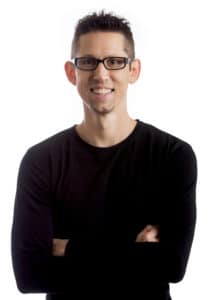 Hal Elrod is on a mission to elevate the consciousness of humanity, one morning at a time. As one of the highest rated keynote speakers in America, creator of one of the fastest growing and most engaged online communities in existence and author of one of the highest rated, best-selling books in the world, The Miracle Morning—which has been translated into 27 languages, has over 2,000 five-star Amazon reviews and is practiced daily by over 500,000 people in 70+ countries—he is doing exactly that.
Hal Elrod is on a mission to elevate the consciousness of humanity, one morning at a time. As one of the highest rated keynote speakers in America, creator of one of the fastest growing and most engaged online communities in existence and author of one of the highest rated, best-selling books in the world, The Miracle Morning—which has been translated into 27 languages, has over 2,000 five-star Amazon reviews and is practiced daily by over 500,000 people in 70+ countries—he is doing exactly that.
Hal actually died at age 20. Hit head-on by a drunk driver at 70 miles per hour, his heart stopped for 6 minutes, broke 11 bones, and eventually woke from a coma to be told by doctors that he would never walk again.
Not only did Hal walk, he went on to run a (52 mile) ultra-marathon and become a hall of fame business achiever—before the age of 30.
Then, in November of 2016, Hal nearly died again—his kidneys, lungs, and heart on the verge of failing, which led to his being diagnosed with a very rare, very aggressive form of cancer (acute lymphoblastic leukemia).
After enduring the most difficult year of his life, Hal is now cancer-free and furthering his mission as the Executive Producer of The Miracle Morning Movie—a documentary that both shows you the morning rituals of some of the world’s most successful people, as well as takes you around the world to show you the life-changing impact that Miracle Mornings are having, globally.
Hal is also host of the highly acclaimed Achieve Your Goals podcast, creator of the Best Year Ever Blueprint Live Experience, and bestselling author of ten [10] books in The Miracle Morning book series.
As one of the most inspiring, highly entertaining (we’re talking “wannabe stand-up comedian” level humor!), and one of the most in-demand keynote speakers in the world, whether you are an individual or an organization, Hal will give you the tools to Wake Up to Your Full Potential.
